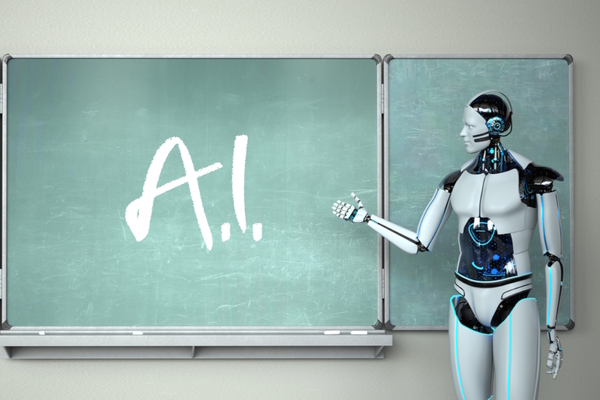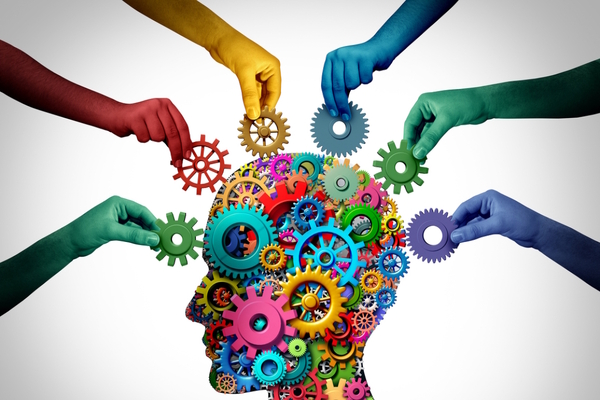AI and automation vs. human expertise

Russell Gammon at Tax Systems explores the balancing act between the efficiencies produced by AI and automation and the need to ensure that human employees continue to have and develop appropriate skills and knowledge
As digitalisation has become ubiquitous and automation is being adopted at pace across all industries, there are concerns being raised over whether some areas of human expertise could be lost. In areas, such as taxation, people have invested thousands of hours to build their experience and knowledge around tax data and complex processes.
While automating such processes clearly has some huge operational and efficiency advantages, the idea of completely replacing human talent could have the opposite effect and, instead, be detrimental to organisations.
However, despite the many options for automation in business processes, human expertise is still critical for business productivity. It provides the nimble-thinking and tactical direction that ensures project success.
In finding a perfect balance of automated tasks and human expertise, organisations can achieve maximum productivity by automating the repetitive, mundane tasks, such as data entry. This frees up valuable people resources to focus on strategic thinking and gives organisations the best of both worlds – people and automation – to achieve peak productivity.
Implications for learning and development
Both graduates and seasoned workers alike are looking for interesting and challenging roles in business, tech and finance, which offer real prospects of progression. Despite some time spent on manual administrative duties being necessary, the adoption of technology can free up an employee’s time to work on more career-enhancing activities.
For digitally native Gen-Z workers, having the opportunity to learn about and use the latest technology is particularly attractive. Not only will it help them to improve processes, access big data and learn how to analyse it, but they might have the opportunity to work with otherwise inaccessible technologies.
Amidst their organisations’ shift towards automation, learning and development (L&D) teams must strategise to attract and retain their best talent for the future. In fact, research has revealed that three-quarters of employees are more likely to stay with an organisation that offers continuous training. This couldn’t be more important than now, in a global skills shortage.
Striking the right balance in L&D strategies
The fact is that work-based learning is essential for professionals who want to develop their careers within their chosen business industry. However, a better way of training those entering the industry is to work with an experienced expert when they are reviewing and checking returns generated by automation: spending hours inputting data is rarely a productive use of time.
Here are some considerations for creating an effective learning approach which benefits individual employees, teams and the business as a whole:
- Assess tasks to be automated: It’s important to start by identifying those tasks which can be automated and which ones require human intervention. Automated tasks might be data entry and calculations, while complex tax planning or offering personalised tax advice is best managed by employees.
- Focus on reskilling and up-skilling employees: It’s vital that organisations provide training and development opportunities for their employees to learn new skills that enhance their ability to work alongside AI and automation technologies. This could include data analysis, machine learning, and programming.
- Involve employees in the implementation process: Involving employees in the planning and implementation process of AI systems will make them more invested, through soliciting their feedback and ideas to improve the process.
- Focus humans on higher-level tasks: Automation and AI can free up time for employees to focus on more complex, high-value tasks that require human judgement and creativity. Companies can restructure roles to ensure that employees are focused on those tasks that add strategic value and benefit employee progression and growth.
- Prioritise customer experience: Although it can speed up processes, use of automation should not come at the cost of customer experience. It’s no secret that customers don’t like speaking to robots and will generally prefer authentic human engagement. Therefore, organisations must ensure that automation is designed to enhance the customer experience and not hinder it.
- Continuous monitoring and evaluation: Continuously monitor the automated processes to ensure they are working effectively and evaluate the customer feedback to make improvements where necessary. Regularly assess the balance between automation and human experience and make adjustments as needed.
Embracing complexity to build agility
Although in some respects, technology is adding complexity to ways of working, the adoption of robust automation systems has the potential to transform the business, motivate employees and boost productivity. The key objective must be to free employees from manual repetitive tasks and to add more value.
In a global skills shortage, L&D teams that invest time into learning will fast-track automation skills and improve employee retention. A good starting point to make roles more attractive is to introduce AI and RPA, while maintaining a focus on individual employee productivity and development.
In this way the business is focusing on its two biggest assets - people and technology - to maximise business agility.
Russell Gammon is Chief Solutions Officer at Tax Systems
Main image courtesy of iStockPhoto.com

Business Reporter Team
You may also like
Related Articles
Most Viewed
Winston House, 3rd Floor, Units 306-309, 2-4 Dollis Park, London, N3 1HF
23-29 Hendon Lane, London, N3 1RT
020 8349 4363
© 2025, Lyonsdown Limited. Business Reporter® is a registered trademark of Lyonsdown Ltd. VAT registration number: 830519543





